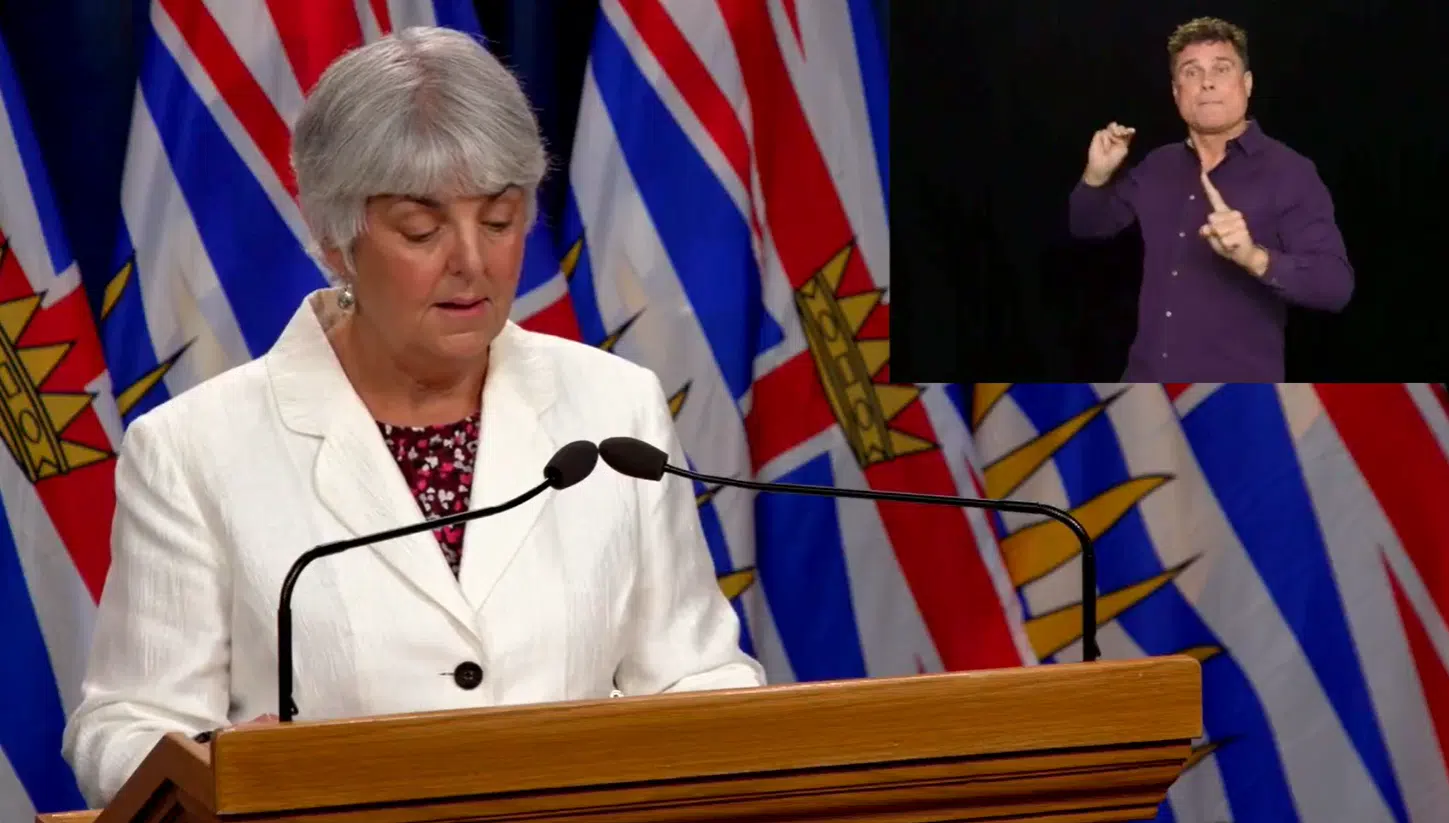
The BC Government is forecasting a provincial budget deficit of $12.5 billion for the current fiscal year, partly due to a massive drop in revenue and increased government spending as a result of the COVID-19 pandemic.
Finance Minister Carole James says it is a massive change from the $227-million operating surplus projected just weeks before the pandemic hit.
“The projected numbers are staggering, but they are not without hope,” she said Tuesday. “Things are getting better each and every day and today’s fiscal update, though certainly far from Budget 2020 provides us an opportunity to build a stronger BC that works for everyone.”
The $12.5 billion deficit also includes $5 billion that was put aside for COVID-19 relief and $1.26 billion in other tax and relief measures for people and businesses, including a one-time increase to the climate action tax credit and property tax reductions for businesses.
“So the economic scenario results in revenue losses totally $6.3 billion in 2021,” James said. “Taxation revenue was down $4.2 billion, natural resource revenue $300-million lower, net revenue from Crown Corporation and agencies down about $1.8 billion.”
More specifically, the province is reporting a $999-million drop in personal income tax collected, a $973-million drop in corporate income tax collected and a $1.35-billion drop in provincial sales tax collected.
James adds its tough to predict how long it will take for B.C. to recover from the COVID-19 economic impacts, noting it will depend on a number of factors, including whether or got we get a second wave of the virus.
“The strong public health response is in fact a strong economic response,” she noted. “We flattened the curve because people came together and its going to take that same kind of discipline, that same kind of hard work and that same kind of caring for each other to help us through the economic recovery.”
“The pandemic has exposed underlying gaps in our economy and society, and I’m looking forward to putting people’s input into action as we move forward with the economic recovery of our province.”
James says B.C.’s real GDP could drop by 6.8 per cent this year, but notes the economy could grow by 3.1 per cent next year as the recovery begins.
Government is also forecasting a 15.9 per cent drop off in retail sales and a 27.6 per cent drop in residential sales this year. However, retail is expected to increase 8.6 per cent while residential sales are expected to rise 9.3 per cent next year.
Jobs numbers rebounding after record losses
While there was some improvement in the B.C. unemployment rate last month at 13 per cent, it is the worst its been since 1987.
Carole James says there were 235,100 fewer jobs in B.C. in June compared to February. New data also noted an uptick in the number of jobs in the utilities, science, and tech industries.
“And while the job losses in March and April were record breaking, the figures for May and June, in fact, have seen some recovery of the losses we experienced in the previous two months as the economy has started to reopen,” James said.
“The unemployment rate in British Columbia decreased to 13 per cent in June from 13.4 per cent in May as more people started to work again and as restrictions start to ease.”
As noted before, the hospitality, retail, recreation, and trade sectors have been among the hardest hit by the pandemic.
“The hardest hit – youth and young adults, and this is in large part due to the fact that they’re over-represented, of course, in restaurant and retail services,” James added, noting the provincial youth unemployment rate is at 29 per cent. She says women were also more likely to have lost jobs compared to men.
As part of the government’s COVID-19 Action Plan, $1.5 billion has been earmarked for economic recovery measures which will be announced in September.
James says the government has also already tabled legislation giving itself the ability to out forward three years of deficit budgets, something which will be re-examined each year.
NDP have no economic recovery plan say BC Liberals
Responding to the fiscal snapshot, the BC Liberals says the Horgan government still has no economy recovery plan.
“A deficit is not at all surprising, but what is surprising is the fact that John Horgan and the NDP still have no economic recovery plan and insist that there will be no change in the government spending priorities they laid out before the pandemic. This is simply unsustainable,” leader Andrew Wilkinson said in a statement.
“We’re hearing from people all across the province about growing desperation with federal benefits about to run out and temporary layoffs becoming permanent. People in every corner of B.C. have had to adjust to a new normal and adapt their household budgets, so why is this government pretending it’s business as usual?”
The Liberals say the deficit is the largest in B.C.’s modern history – an increase of about $2,643 for every British Columbian. As well they say the province has the fourth-highest joblessness rate in Canada, but question how that is possible when the province has done well in flattening the COVID-19 curve.
“British Columbians assumed that for the past four months the NDP was working on an economic recovery plan, but so far all they’ve seen is a public opinion survey while the situation gets worse for people every day. People need help now,” added Finance co-critic Stephanie Cadieux.
“Hundreds of thousands of people are out of work, CERB is ending soon, and there’s still no plan for school days in the fall. British Columbians will be bracing for a dark Christmas this year with no economic recovery plan from John Horgan.”















